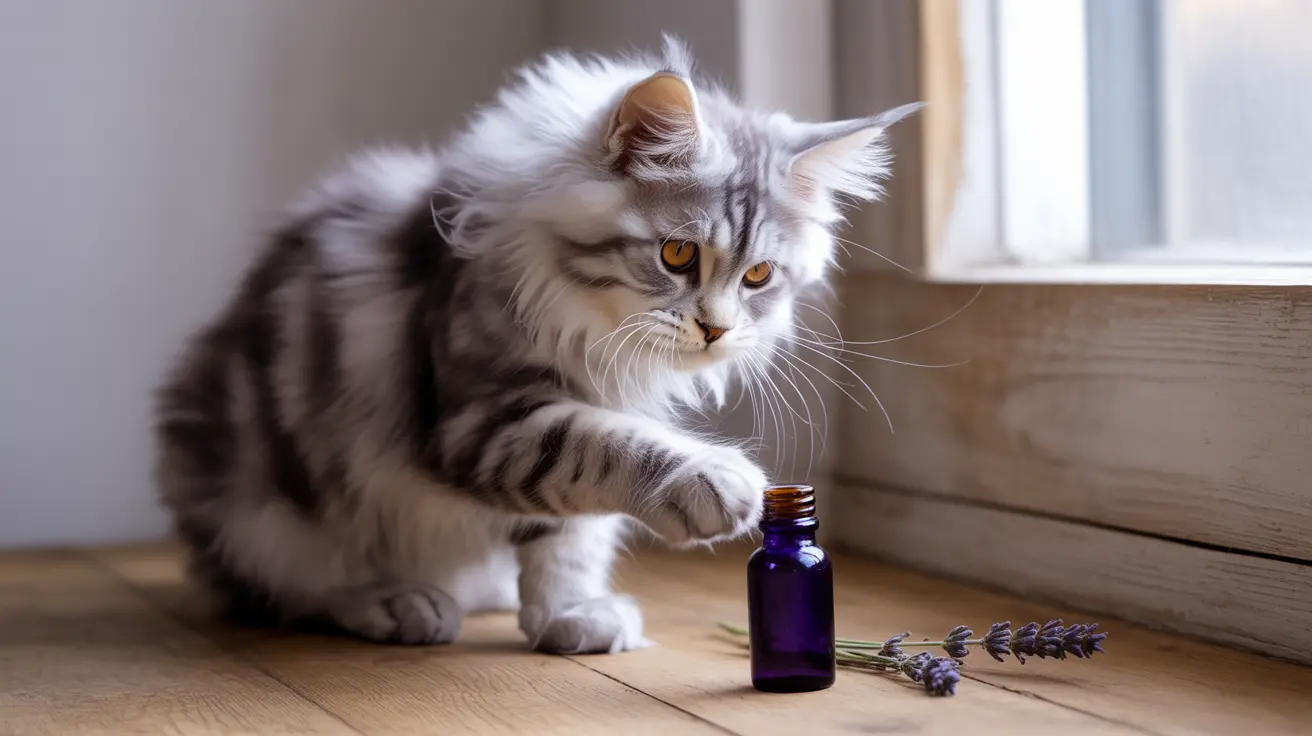As pet owners seek natural alternatives to chemical flea treatments, lavender oil has gained attention as a potential solution. However, before reaching for this aromatic remedy, it's crucial to understand the facts about lavender oil for fleas and its safety implications for our feline friends.
This comprehensive guide will explore the relationship between lavender oil and flea control in cats, examining both the risks and realities of this popular natural remedy. More importantly, we'll discuss why veterinary experts consistently warn against its use and what safer alternatives are available.
Understanding Lavender Oil and Cats: A Dangerous Combination
While lavender oil may have insect-repelling properties, its use on cats poses significant risks. Cats lack specific liver enzymes necessary to metabolize essential oils effectively, making them particularly vulnerable to toxicity. Even small amounts of lavender oil can lead to serious health complications, whether absorbed through the skin, inhaled, or ingested during grooming.
The Truth About Lavender Oil's Effectiveness Against Fleas
Despite popular claims, lavender oil primarily acts as a flea repellent rather than an insecticide. While it may deter some fleas, it doesn't effectively kill them or address the complete flea life cycle, including eggs and larvae. This limited efficacy, combined with its toxicity risks, makes it an unsuitable choice for flea control in cats.
Signs of Lavender Oil Toxicity in Cats
Cat owners should be aware of the following symptoms that may indicate lavender oil poisoning:
- Excessive drooling or vomiting
- Respiratory distress
- Muscle tremors
- Lethargy or weakness
- Difficulty walking
- Redness or irritation of the skin
- Pawing at the mouth or face
Safe and Effective Alternatives for Flea Control
Instead of risking your cat's health with lavender oil, consider these veterinarian-approved flea control methods:
Mechanical Flea Control
- Regular flea combing
- Washing bedding in hot water
- Vacuuming frequently, especially in carpet and upholstery
Veterinary-Approved Products
- Prescription flea medications
- FDA-approved topical treatments
- Oral flea prevention tablets
Why Veterinarians Advise Against Lavender Oil
The consensus among veterinary professionals is clear: lavender oil should not be used for flea control in cats. This stance is based on documented cases of toxicity, lack of proven efficacy, and the availability of safer, more effective alternatives. Even diluted solutions or diffused oil can pose risks to cats' sensitive systems.
Frequently Asked Questions
Is lavender oil safe for use as a flea repellent on cats?
No, lavender oil is not safe for cats. It can cause serious toxicity issues due to cats' inability to properly metabolize essential oils, leading to potentially severe health complications.
How can I safely repel fleas from my cat without using lavender oil?
Use veterinary-approved flea preventatives, regular flea combing, and environmental management techniques like frequent vacuuming and washing of pet bedding. Consult your veterinarian for the most appropriate flea control program for your cat.
What are the symptoms of lavender oil toxicity in cats?
Symptoms include drooling, vomiting, respiratory issues, muscle tremors, lethargy, difficulty walking, and skin irritation. If you notice any of these signs, seek immediate veterinary care.
Can I use lavender oil in a diffuser around my cat for flea control?
No, even diffused lavender oil can be harmful to cats. They can inhale the oil particles and ingest them while grooming, potentially leading to toxicity.
What are some alternative natural flea repellents that are safer for cats than lavender oil?
While natural alternatives exist, the safest approach is to use veterinary-approved flea treatments. Regular grooming with a flea comb and maintaining a clean environment are safe, natural ways to support flea control efforts.
Remember, when it comes to flea control for your cat, always prioritize safety over natural alternatives. Consult with your veterinarian to develop an effective, safe flea control strategy that won't put your cat's health at risk.






